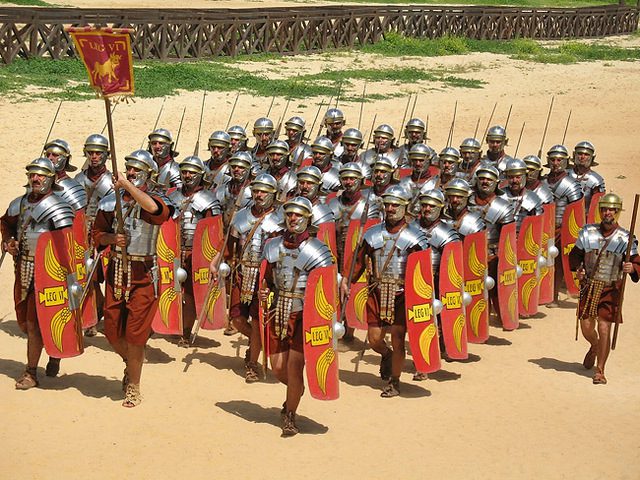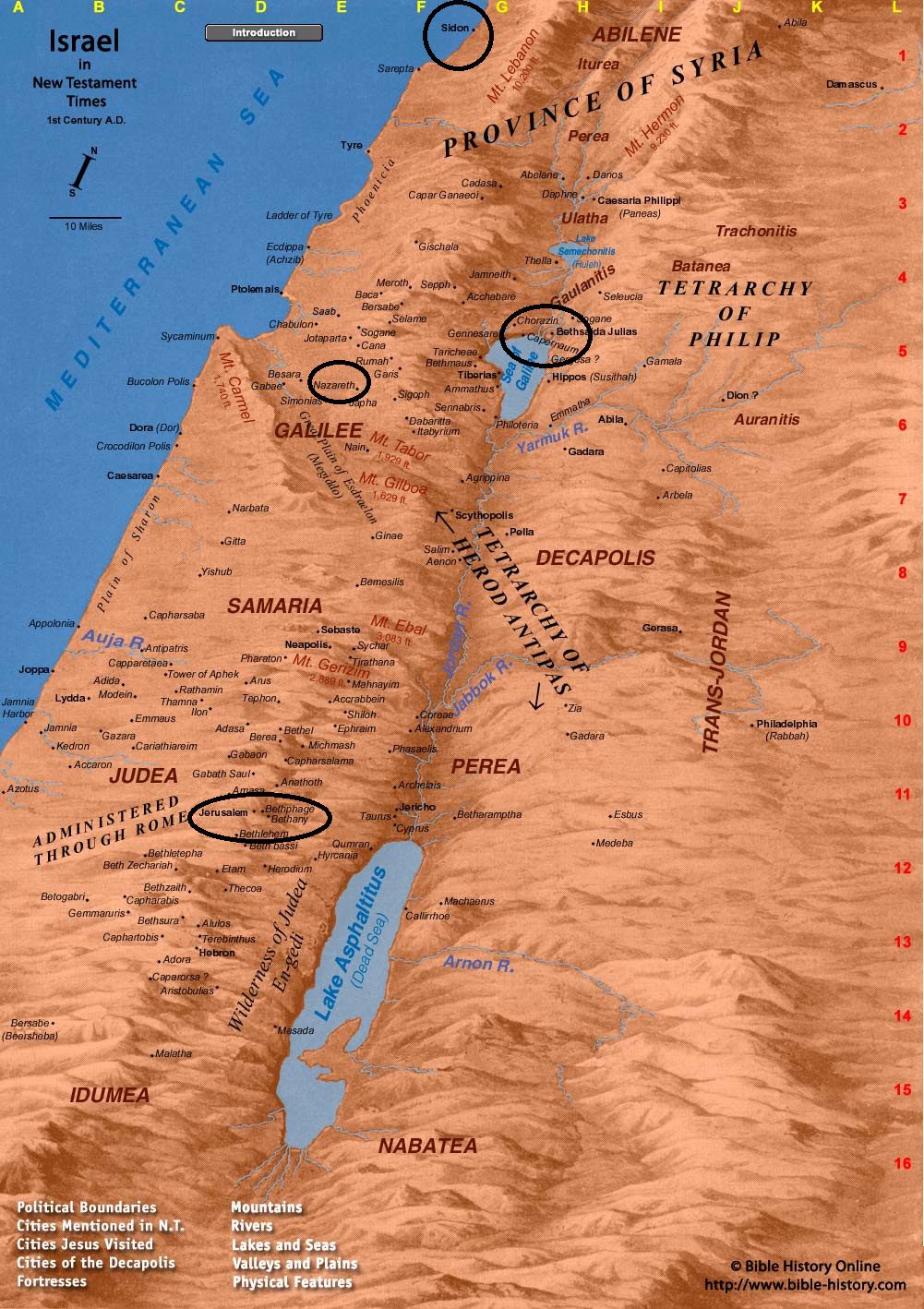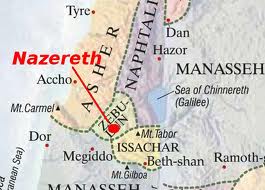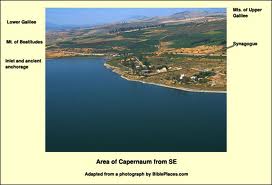(Just a bit more Roman history before we continue in Luke 7)
• Judah in path of invading armies crossing eastern Mediterranean shores
– Judah controlled by Syrians, Greeks, Romans, others over the years
• Syrians took over in 198 B.C., introduced Greek culture to Jews
– Jews allowed to keep religion, but some adopted Greek culture, gods
• In 175 B.C., Syrians insisted Jews worship Greek gods; Jews refused
– Jewish religion was outlawed; some fled to hills, prepared to fight
Rebels Fight Syria
• Jewish priest and five sons led fight to drive out Syrians
– son Judah Maccabeus led revolt with his force, the Maccabees
• Tiny Jewish force faced larger, better equipped Syrian army
– rebels knew countryside and defeated Syrians in many battles
• Maccabees regained Jerusalem by 164 B.C.
Rome Conquers Judea
• Romans conquered Judah (Judea) in 63 B.C.
• Roman rulers kept strict control over Judea
• Jewish kings, religious leaders appointed by Rome
Leader(s) of the Maccabees Timeline
167 BC: Mattathias, the Hasmonean
166 – 161 BC: Judas Maccabaeus, the Hammer of the LORD
161 – 143 BC: Jonathan Apphus, the Wary
143 – 135 BC: Simon Thassi, the Zealous Guide
Although the Maccabees, and later their descendants, the Hasmoneans, managed to keep Israel free from foreign oppression for almost 150 years, this abruptly ended with King Herod who was not a Hasmonean at all.
The Hasmonean dynasty, which leaped onto the stage of history with such dramatic heroism, disappeared from that same stage with cruel suddenness. The despot Herod, whose régime was forced upon the unwilling Jewish populace by his Romans overlords, was fully aware that the aura of Hasmonean charisma would constitute a continual threat to his power, and hence he undertook to ruthlessly murder all the remaining descendants of that family, including his beloved wife Mariamne, granddaughter of the Hasmonean ruler Hyrcanus II. Herod executed her on trumped-up charges of disloyalty, as he did afterwards to the two sons she had borne him, Alexander and Aristobulus. – Wikipedia
Herod builds another Temple in Jerusalem and many buildings throughout Judea with the support of Rome.
Herod the First of Judaea, known to history as Herod the Great
- Alexander died in 76 B.C. and Salome ruled alone until her death in 67 B.C. Upon the death of the queen a civil war broke out between her two sons. Herod’s father Antipater II sided with Hyrcanus…
- Rome had intervened in Syria and ousted their King and posted Legions in Syria.
- Caesar and Pompey were also in a Roman civil war for power. Herod’s father had supported Caesar and was made Procurator of Judea.
- Herod loyally supported Antony against Octavian until 31 B.C. Octavian defeated Antony, but had no one to replace Herod and gave him some of Antony’s territories given by Antony of Rome to Cleopatra of Egypt.
- Near the time of Herod’s death (just prior to the birth of Jesus) Herod feared a coup from his own sons as more civil unrest broke out in his Kingdom of Judea (given to his family as political compromise by Rome).
HEROD’S PERSECUTIONS
Herod’s persecutions were infamous and they even extended to his own family.
Herod, knowing that his Jewish credentials were suspect, had married Miriam—the granddaughter of Hyrcanus and therefore a Hasmonean princess—largely to gain legitimacy among the Jewish people. But he also loved her madly. As Josephus relates:
Of the five children which Herod had by Miriam, two of them were daughters and three were sons. The youngest of these sons was educated in Rome and died there but the two eldest he treated as those of royal blood on account of the nobility of their mother and because they were not born until he was king. But what was stronger than all this was his love he bore for Miriam which inflamed him every day to a great degree.
The problem was that Miriam hated him as much as he loved her, largely because of what he had done to her brother, Aristobulus.
Herod had made Aristobulus High Priest at the age of 17, and watched with trepidation as the young man became hugely popular. This was not surprising as Aristobulus was a Hasmonean with a legitimate right to be High Priest – a genuine Jew and a genuine cohen.
But this threatened Herod too much and he had him drowned.
- Luke does not retell the story of Joseph and Mary fleeing from Bethlehem to Egypt before returning to Nazareth after Herod’s death. We do, however get a flavor of the controversy of the Herod’s vs. the Jews in the story of John the Baptist.
Although we have looked past the calls of John the Baptist to the people and the King for repentance to the call of Jesus to the multitudes for repentance, Luke also reports more of John’s relationship with Jesus in chapter 7.
To be continued in Luke 7.



